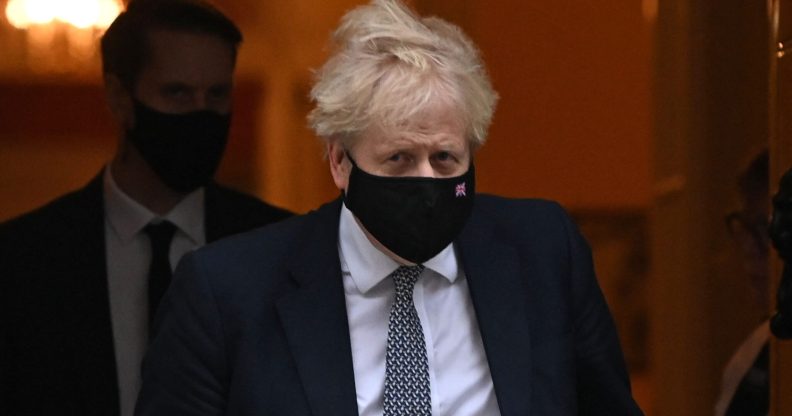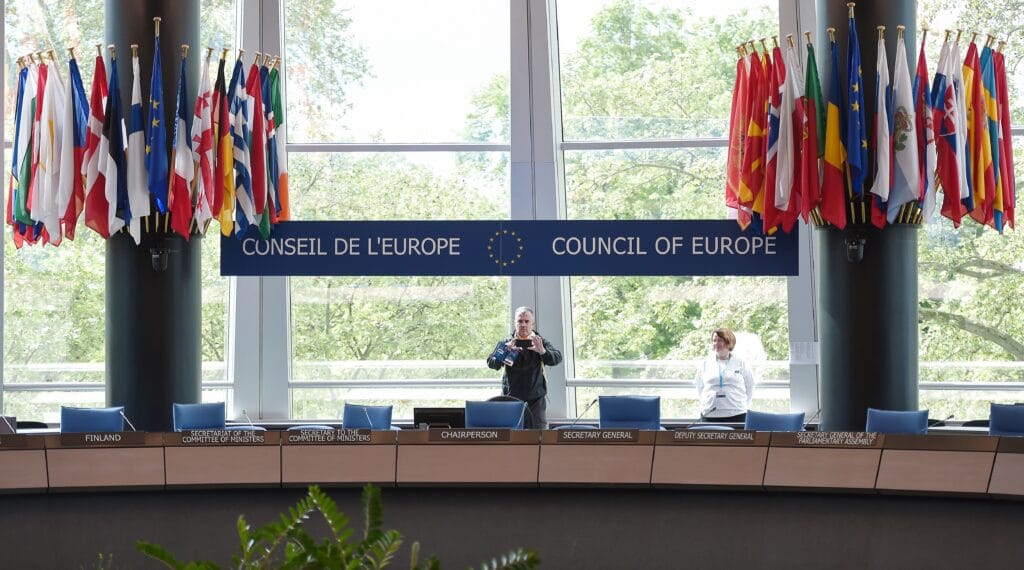Council of Europe compares UK to Russia and Poland over ‘virulent attacks’ on LGBT+ rights

Britain’s prime minister Boris Johnson leaves from 10 Downing Street. (DANIEL LEAL/AFP via Getty Images)
The Council of Europe has denounced the UK’s “virulent attacks” against LGBT+ people in a scathing report that puts the nation in company with Russia.
The continent’s leading human rights organisation that stretches 47 member states voted to uphold a damning 2020 report by the Committee on Equality and Non-Discrimination.
Echoing calls made by countless activists, parliamentarians said that as much as Europe has made progress in LGBT+ rights, hate speech and hate crime have surged.
And some member states have dragged down such leaps, with the committee going as far to condemn those that have encouraged “gender critical and anti-trans narratives which reduce the right for equality”. Namely, the UK.
On Tuesday (25 January), the council’s Parliamentary Assembly voted 48 to six to adopt the report titled “Combating rising hate against LGBTI people in Europe”.
The report took aim at a bloc of countries it said have launched “virulent attacks” against LGBT+ citizens for years: “Hungary, Poland, the Russian Federation, Turkey and the United Kingdom.”
‘Gender-critical views’ are a ‘challenge to democracy’, says Council of Europe
“The rising hatred we are witnessing today is not simply an expression of individual prejudice,” the resolution said.
“But the result of sustained and often well-organised attacks on the human rights of LGBTI people throughout the European continent [by] highly conservative movements.”
“The Assembly condemns the highly prejudicial anti-gender, gender-critical and anti-trans narratives which reduce the fight for the equality of LGBTI people to what these movements deliberately mischaracterise as ‘gender ideology’ or ‘LGBTI ideology’.”
To believe in “gender critical” views, the human rights group said, is to “deny the very existence of LGBTI people [and] dehumanise them”.

People visit the Committee of Ministers meeting room during the open day marking the 70th Anniversary of the Council of Europe. (FREDERICK FLORIN/AFP via Getty Images)
Sparring LGBT+ rights against those of women and children is “deeply damaging, while also harming women’s and children’s rights and social cohesion”.
Anti-trans voices are a “direct challenge to democracy”, the assembly added, fuelling the “stagnation and backsliding in progress”. Their aims chip away at “LGBTI equality, sexual and reproductive rights and women’s and children’s rights”.
Two UK delegates, Lord David Blencathra and John Howell, voted against the report. Tonia Antoniazzi abstained.
A bloc of Labour delegates sought to remove the provisional point calling out “gender-critical” views altogether and that the UK be removed from the list of nations that are attacking LGBT+ rights.
Their amendments – including one that would have recommended that support services be separated by “sex” – were shot down amid fierce criticism from fellow parliamentarians and activists.
In the UK, life-saving reforms to gender recognition law were watered down in what activists compared to “Section 28”, with trans people are hounded, dehumanised and demonised by the UK’s mainstream media on a regular basis and the government repeatedly delaying plans to ban conversion therapy.
A report by the European Commission placed the UK’s legal recognition of trans people among the very worst in Europe.
The same holds true for ILGA-Europe’s equality index – something UK leaders once boasted about ranking high on. Last year, the UK tumbled down to tenth place, with advocates citing the biting words of anti-trans voices.
“The significant advances achieved in recent years are today under threat,” the Council of Europe concluded of rights across the continent for LGBT+ people.
“It is crucial to react quickly in order to prevent further backsliding and work actively to promote full respect for the rights of LGBTI people.”

